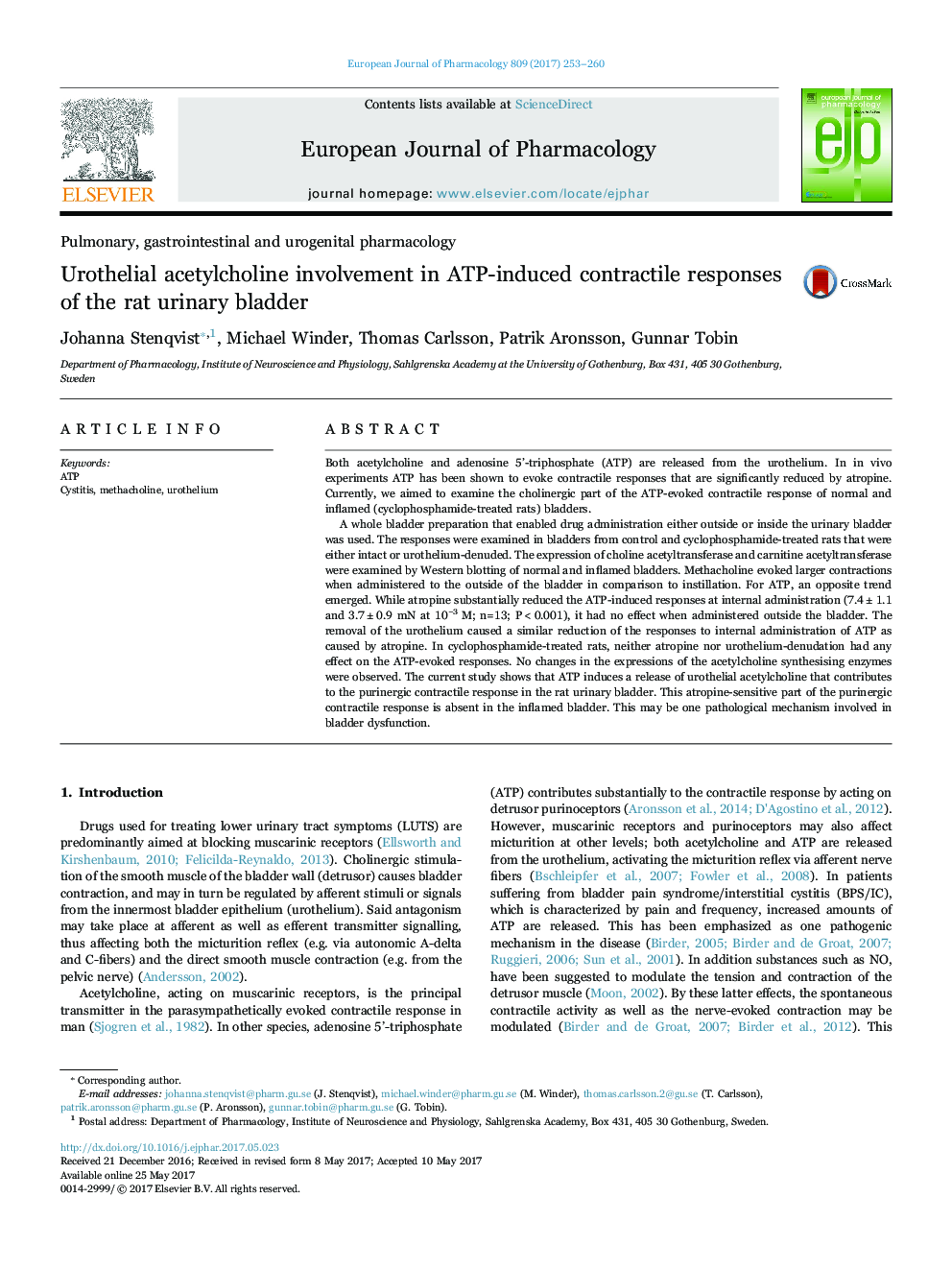| Article ID | Journal | Published Year | Pages | File Type |
|---|---|---|---|---|
| 5554529 | European Journal of Pharmacology | 2017 | 8 Pages |
Both acetylcholine and adenosine 5'-triphosphate (ATP) are released from the urothelium. In in vivo experiments ATP has been shown to evoke contractile responses that are significantly reduced by atropine. Currently, we aimed to examine the cholinergic part of the ATP-evoked contractile response of normal and inflamed (cyclophosphamide-treated rats) bladders.A whole bladder preparation that enabled drug administration either outside or inside the urinary bladder was used. The responses were examined in bladders from control and cyclophosphamide-treated rats that were either intact or urothelium-denuded. The expression of choline acetyltransferase and carnitine acetyltransferase were examined by Western blotting of normal and inflamed bladders. Methacholine evoked larger contractions when administered to the outside of the bladder in comparison to instillation. For ATP, an opposite trend emerged. While atropine substantially reduced the ATP-induced responses at internal administration (7.4±1.1 and 3.7±0.9 mN at 10â3 M; n=13; P<0.001), it had no effect when administered outside the bladder. The removal of the urothelium caused a similar reduction of the responses to internal administration of ATP as caused by atropine. In cyclophosphamide-treated rats, neither atropine nor urothelium-denudation had any effect on the ATP-evoked responses. No changes in the expressions of the acetylcholine synthesising enzymes were observed. The current study shows that ATP induces a release of urothelial acetylcholine that contributes to the purinergic contractile response in the rat urinary bladder. This atropine-sensitive part of the purinergic contractile response is absent in the inflamed bladder. This may be one pathological mechanism involved in bladder dysfunction.
